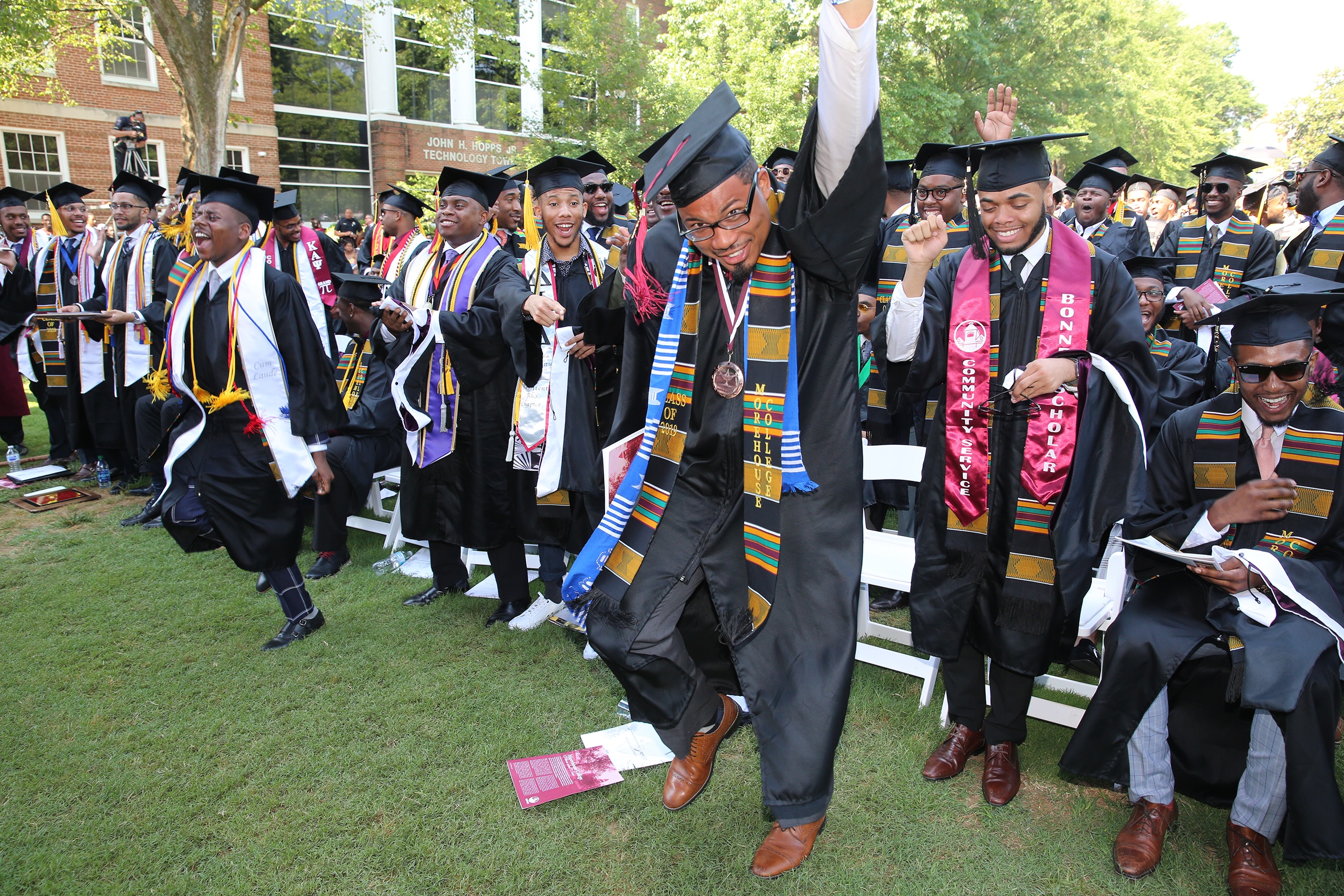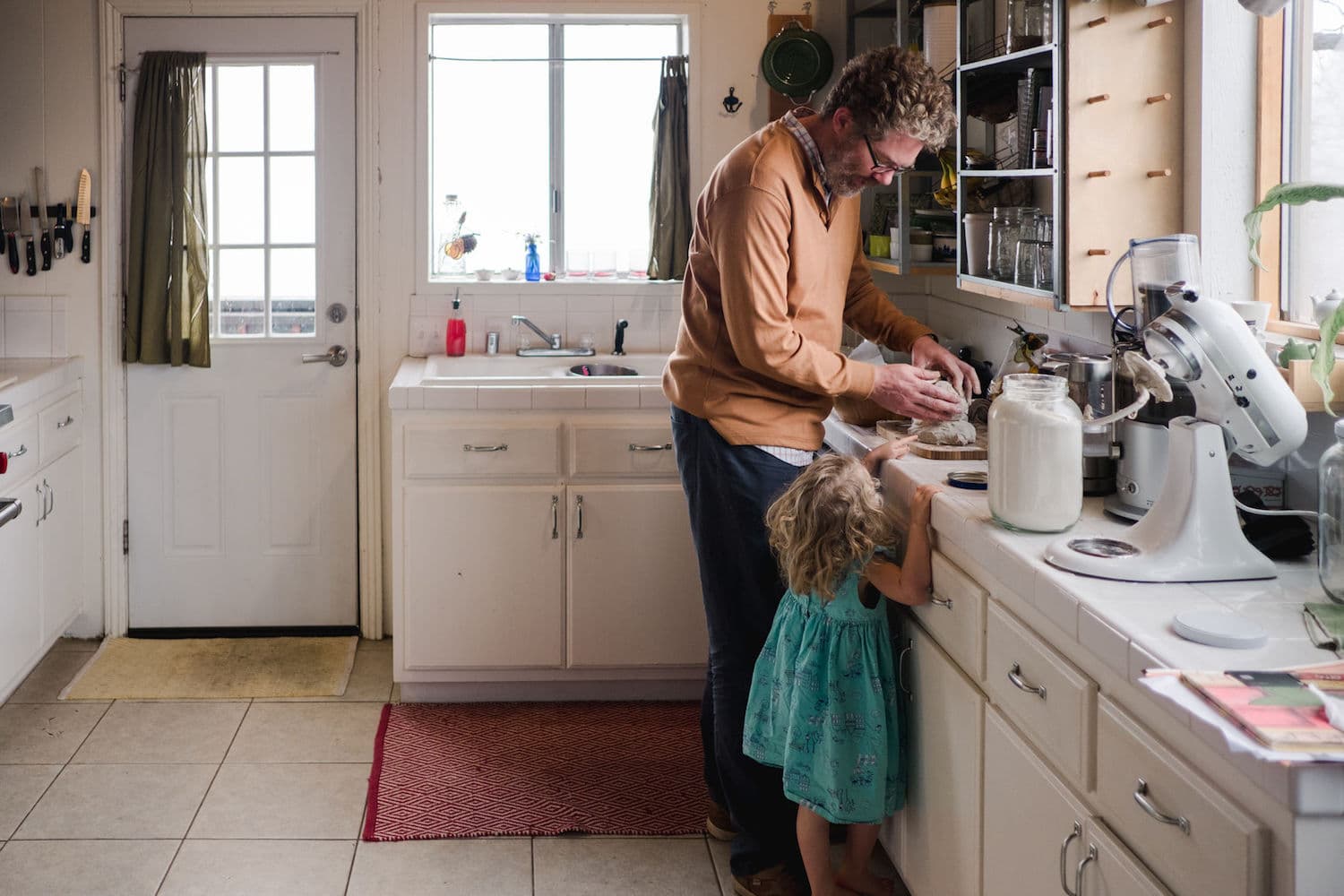
Graduation ceremonies tend to be memorable in their own right — but the Morehouse College Class of 2019 graduation became unforgettable after alumnus Robert F. Smith, founder and CEO of Vista Equity Partners, pledged to pay off all student loans held by the entire graduating class.
As Smith explained, in his commencement speech:
Men of Morehouse, you are surrounded by a community of people who have helped you arrive at this sacred place and on this sacred day. On behalf of the eight generations of my family who have been in this country, we’re going to put a little fuel in your bus. Now I’ve got the alumni over there, and this is a challenge to you, alumni. This is my class, 2019. And my family is making a grant to eliminate their student loans.
Now, I know my class will make sure they pay this forward. And I want my class to look at these alumnus, these beautiful Morehouse brothers, and let’s make sure every class has the same opportunity going forward. Because we are enough to take care of our own community. We are enough to ensure we have all the opportunities of the American Dream.
What is it like when your student debt disappears? How does this kind of opportunity reshape your future? I had the privilege of interviewing Steven Anderson II, Juan Clark and Josef Sorrells about their Morehouse experience, how they felt when Robert Smith announced his gift and how this incredible act of generosity will change their lives.
Why did you choose Morehouse?
Anderson: I am from Dayton, Ohio, and I decided to go to Morehouse College, which is eight hours away from home, because I really believed in the mission of the college. The college doesn’t just focus on the student making their way through school and getting credits; the college focuses on the whole man and on making sure they raise men who lead lives of leadership and service. I knew that was the type of man I wanted to be when I entered into the world.
Clark: I’m a third-generation HBCU (historically black colleges and universities) graduate, so I really wanted to perpetuate the educational legacy of my family. I specifically chose Morehouse given the fact that it is the only space in the world that is truly dedicated to the education of black men. I grew up in a very affluent, predominantly white area, so I knew that whatever school I chose I was going to be a great student, but I wanted to find a place that was not only going to develop me educationally, but develop my character and my identity as a man as well.
Sorrells: I graduated high school with my associate’s degree and my high school diploma. When I was looking into schools, I was looking for schools that accepted most of my credits and that were historically black colleges and universities, of which Morehouse is one. When I was going through my list of choices, I remembered a fifth-grade trip to Morehouse College. As I reminisced on that trip, I knew that Morehouse College was the fit for me. Morehouse was the choice, I had no doubt. Morehouse was able to grow me, mold me, and shape me to live a life of leadership and service.
What did you major in?
Anderson: At Morehouse, I studied English. This major allowed me to be able to really hone in my writing skills and also be able to think critically about different topics and different issues that are affecting the world. Through activities on campus like the Student Government Association and the internship I had with a political advocacy group, I decided that I wanted to do work in politics and in public policy, and also in different aspects of leadership. That’s what I’m going to be doing now that I’m graduated.
Clark: My major was biology. I’m going to start my career in healthcare administration at Atlantic Health System in Morristown, New Jersey.
Sorrells: My B.S. is in political science.
What was your student loan situation like when you graduated?
Anderson: I took out around $180,000 in loans. Morehouse cost almost $50,000 per year, and although I received scholarships from Morehouse and my community in Dayton, the main way I paid my tuition was through loans.
Clark: I had three scholarships that pretty much composed the majority of my tuition, so I actually have less than $2,000 in student loan debt.
Sorrells: I had between $42,000 and $45,000 of debt.
Why life insurance
Life insurance is a financial safety net for your partner, your kids, your life...
Read moreHow did it feel to learn that Robert Smith was going to pay off your loans?
Anderson: Mr. Smith’s gift has given me the freedom, after graduation, to wholeheartedly chase my dreams.
Clark: I don’t have that much student loan debt, but I know a lot of brothers in my class had to take out almost $150,000 worth. I was more happy knowing that they would be able to get that covered and what that means to them and to their families.
Sorrells: After the ceremony, I went to my parents and my cousins and all of the people who had supported me, saying “Did he say he was going to pay off all of my loans? All of my loans?” It was a very surreal moment. I never thought that I would be afforded the opportunity or the act of kindness to receive a grant that will eliminate all of my student loans for my undergraduate degree. It was an amazing moment that I will cherish for the rest of my life.
How will this gift change your future?
Anderson: I’ve told everyone that the amazing thing about what Mr. Smith did was to open up a lot of doors. As someone who’s still searching for a job, I can make a decision about what job I want and not have to worry about paying back student loans. To not have that fear about “oh, I have to get this job that pays this amount, because in a week I have to start paying back my student loans.” Or “I can’t look into getting an apartment, or getting a car, because of student loans.”
Clark: I’m senior class president, so I also talk on campus with a lot of people in my class, and a lot of them told me that getting this student debt relieved actually opened doors for their brothers and sisters to go to school at Morehouse or Spelman or be able to pursue different educational paths. A lot of people in my class, because of their student loan debt, they had to immediately go into industry. Now they’re changing that up. Instead of thinking “I have to go to work for five years,” they’re thinking “I can go to work for one year and then go get a master’s program.” It’s opening up doors and opportunities.
Sorrells: This is a turning point. I have two parents who are working class citizens, and they took out those loans. The average student at Morehouse College, getting a four-year degree, spans about $199,000 [in student debt]. With this opportunity from my brother Mr. Smith, he’s been able to wipe out the remaining debt I had left. Roughly $42,000. This puts me in another tax bracket, I’m debt-free, my credit score will be better, but not only that — as I journey towards my master’s and my law degree, the accumulation of debt going into that path has now been eliminated. Now I can look at the schools on my list that I really want to go to, in addition to the scholarships that are being offered. This puts me in a better financial state. We have a fresh new start!
Nicole Dieker is a full-time freelance writer. Her work regularly appears on Bankrate, Lifehacker, The Write Life, and numerous other sites. She is the author of Frugal and the Beast: And Other Financial Fairy Tales. This article is sponsored by Haven Life Insurance Agency.
Photo credit: Morehouse College
The post What 3 Morehouse College graduates plan to do now that they’re free of student debt appeared first on Blog | Haven Life | Life insurance & Personal Finance Tips.
from Blog | Haven Life | Life insurance & Personal Finance Tips http://bit.ly/2ZdyUIN



ConversionConversion EmoticonEmoticon